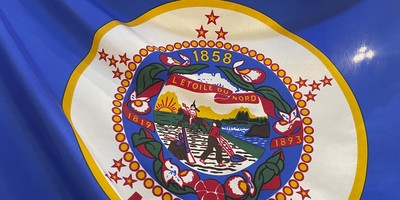Who says Occupy Wall Street hasn't accomplished something specific?
You can put a number on it, or at least The Associated Press did. Talk about redistributing the wealth: According to the AP, the first two months of the nationwide Occupy Wall Street protests cost local taxpayers across the country at least $13 million in overtime for police work and other such expenses.
That's $13 million in public services the Occupy crowd has accomplished right there.
At least since Huey Long's late great Share the Wealth clubs, there have been those convinced that the 1 percent are holding down the 99 percent. Their solution, now as then, is to redistribute the wealth. As if the American economy were one great pie rather than a dynamic, always-changing system, forever poised between growth and decay.
But it's not true that Occupy Wall Street and its various local franchises have no respect for private property. They have so much respect for it they'd like government to send more of it their way -- so they could respect it even more. Up close.
It's not just wealth that the redistributionists would redistribute, but constitutional powers. With or without the consent of the governed. The other day our president announced the appointment, effective immediately, of four top federal regulators, also know as czars these informal days -- as in car czar, health-care czar, AIDS czar ... and so interminably on.
These latest four czars are what's known as recess appointments -- appointments made while Congress is not in session. That is, in recess. Nothing wrong with that. A president is permitted to fill vacancies in office when Congress is in recess.
There's just one small problem: Congress isn't in recess. Not formally. Indeed, the Senate, which is supposed to approve such appointments, can't be in recess because the House hasn't agreed to adjourn, and neither house may recess for more than three days without the consent of the other. As the Constitution prudently provides.
Recommended
Those cagey Founding Fathers were scarcely strangers to political intrigue, having engaged in it with some regularity, and with some relish, too. They were determined to erect safeguards against a president's trying to get around Congress' constitutional powers, as all chief executives are tempted to do. The framers built well; it's still hard to get around the Constitution's limits, though Lord knows presidents will try.
The White House dismissed all such objections as technicalities, mere technicalities. It would decide when Congress was and wasn't in session, thank you. Those nitpicking Republicans were making a great big fuss over a little nothing. Just a few words of the Constitution. To be specific, Article I, Section 5, and only the last clause of it at that. Big deal. Our president has decided to ignore that petty detail. Call him our constitution czar.
Those same Founders prescribed the oath that presidents take on entering office, and even stuck it in the new Constitution, obliging the chief executive to swear, in front of God and everybody, to "preserve, protect, and defend the Constitution of the United States."
But, hey, those are only words, too.
Why let them stop a president? Why not occupy the Constitution, too?
Thrown out of Zuccotti Park in lower Manhattan, Occupy Wall Street has sought sanctuary elsewhere. This led it, naturally enough, to the traditional providers of sanctuary, the nearest church, in this case Trinity Wall Street.
Trinity Wall Street. What a perfect name for a church, combining as it does the holy and profane. But what doesn't? And just which is which? And why can't the two mix, like good and evil, commerce and holy orders?
Even a church has to keep books, if only to keep up with tithes, and the most sincere prayers may be uttered on the floor of a stock exchange. Especially during a crash. Think of the appeals to heaven that must have risen from the New York stock exchange in October of 1929. There may be few things more sincere than desperation. Blessed are the poor in spirit.
Trinity Wall Street offered the Occupiers sanctuary all during their takeover of nearby Zuccotti Park -- not just "expressions of sympathy," according to a report in the ever-earnest New York Times, "but also meeting spaces, resting areas, pastoral services, electricity, bathrooms, even blankets and hot chocolate." Sounds homey.
But when the Occupiers wore out their welcome at the park, and sought sanctuary on church property at Duarte Park, the Rev. James Cooper decided enough was enough. "Calling this an issue of 'political sanctuary' is manipulative and blind to reality," the reverend pronounced.
Doing unto others is one thing, being done unto quite another, and that's where the Rev. Mr. Cooper drew the line. It was one thing for public property to be occupied, another when his own church became occupied territory. His eyes were opened, praise the Lord.
No, it may not have been a miracle. On the contrary, you might say the reverend's reaction was wholly natural under the circumstances. It's called the Tragedy of the Commons. What's everybody's property is nobody's while one's own is seen as sacred. The reverend may have been blind before, but now he sees. Nothing increaseth understanding like being victimized by self-proclaimed victims. In this changing world, that much doesn't seem to have changed at all.

























Join the conversation as a VIP Member